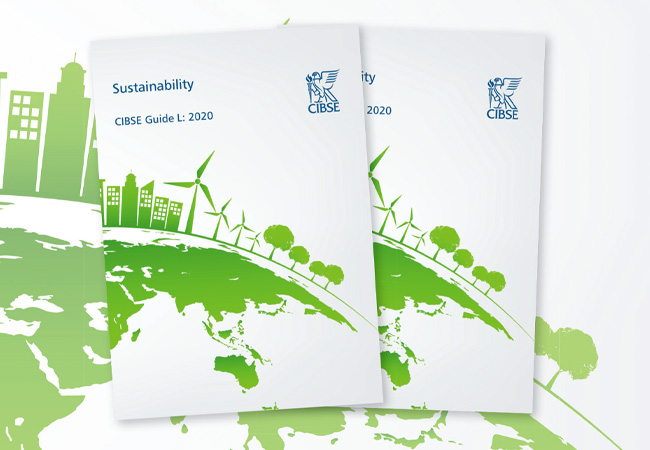
CIBSE’s new updated Guide L aims to empower engineers to deliver the next generation of low carbon, sustainable buildings.
The updated Guide L: Sustainability recognises the huge influence engineers have over sustainability and the health and wellbeing of building occupants.
This guide, an update on the previous 2007 edition, explores the actions that building services engineers should take to ensure their projects deliver sustainable results. It gives clear focus on the areas of work where engineers have greatest control and influence.
It outlines the principles for sustainability for engineers and covers energy use, carbon dioxide emissions, health and wellbeing, water use and other sustainability outcomes.
In the foreword, Susan Hone-Brookes, CIBSE vice-president emphasises the importance of the guide in embedding sustainability into all aspects of the work engineers do. She calls on engineers to be informed committed, bold and creative in their work.
She said: ‘Your actions as an engineer are pivotal to the successful management of our home planet ecosystem, the safeguarding of all species and the security and prosperity of our future generations.’
David Cheshire, AECOM regional director, co-author and chair of the Guide L steering committee said: ‘Having been involved in both the original and the new guide, it was inspiring to see how much has changed over the last 13 years and how engineers have used the increased awareness of the climate crisis to challenge and influence projects.
‘This new edition calls for engineers to use systems thinking, building physics and even ecosystems services to create a zero carbon, circular and sustainable future.’
The guide acknowledges the changes in society that will be needed to achieve real, measurable results, while setting out best practice for what can be achieved now. Case studies also illustrate where best practice has achieved real progress towards more sustainable buildings and places.
The Guide will also be of interest to other professionals across the built environment chain, including architects, building surveyors, specialist contractors, clients and developers.
Guide L: Sustainability is available at the CIBSE Knowledge Portal cibse.org/knowledge
